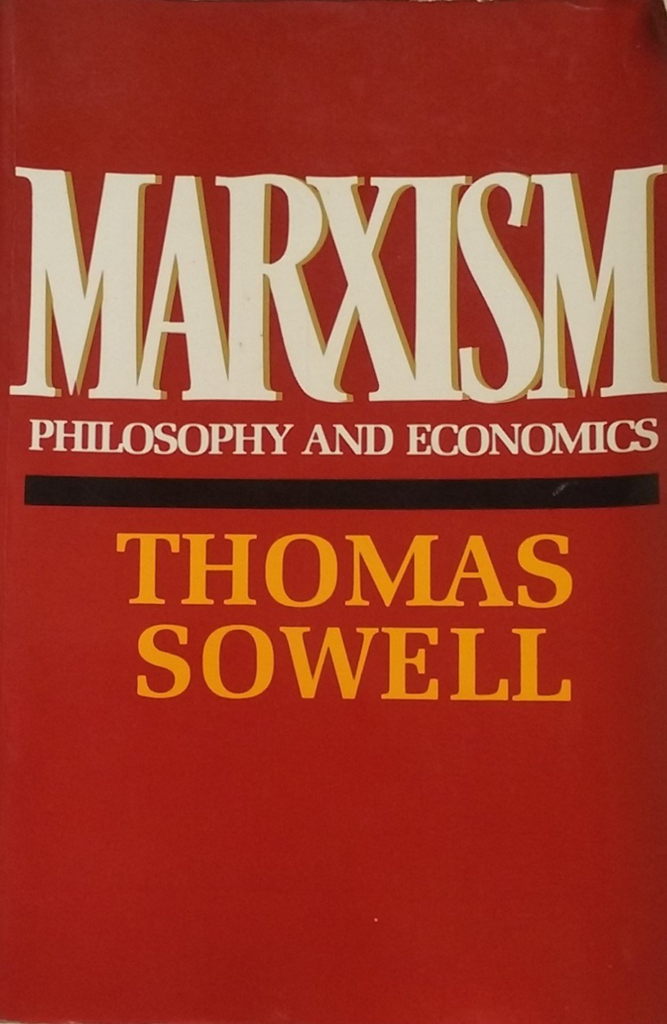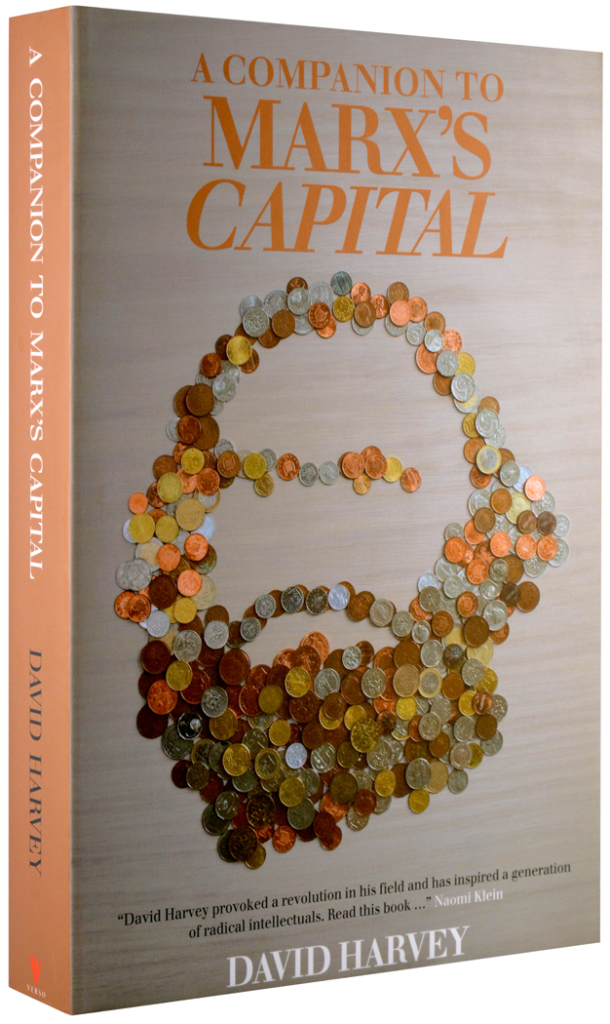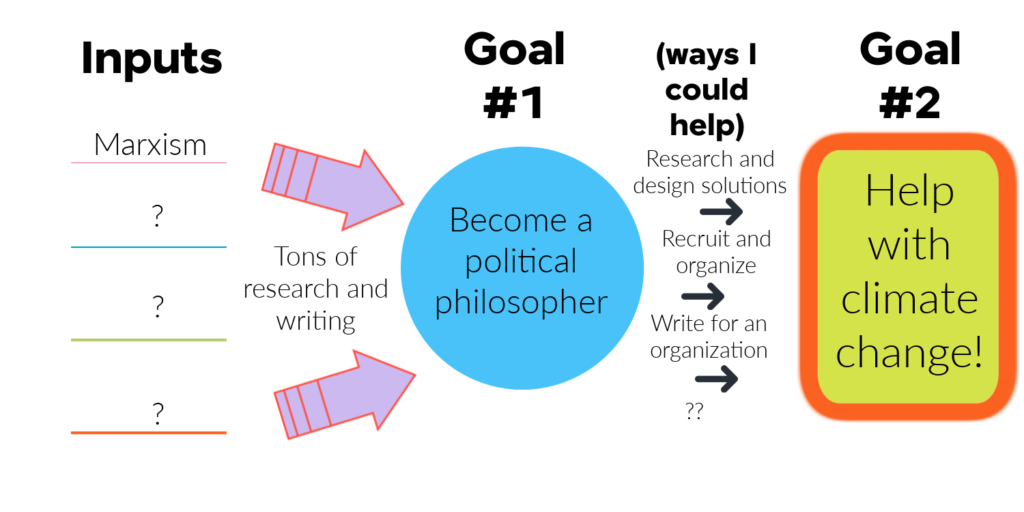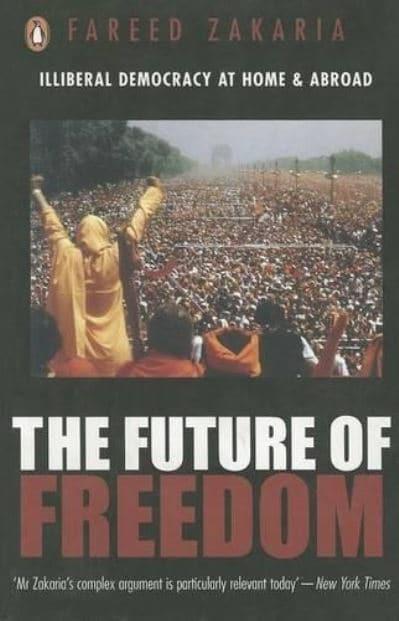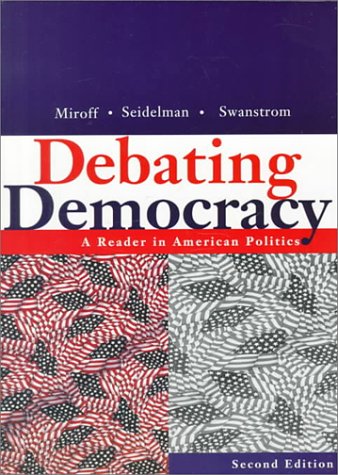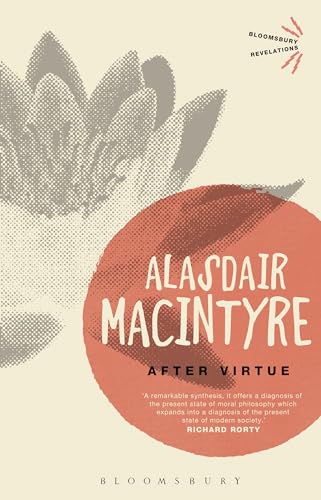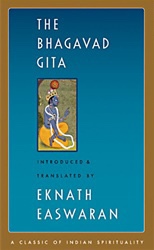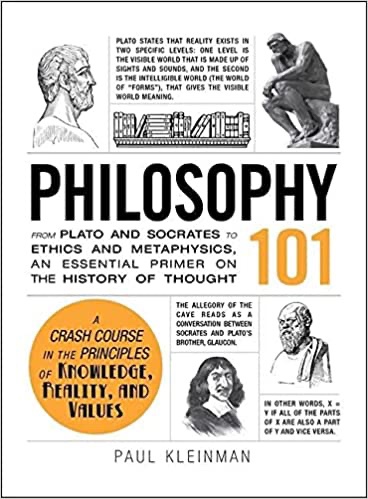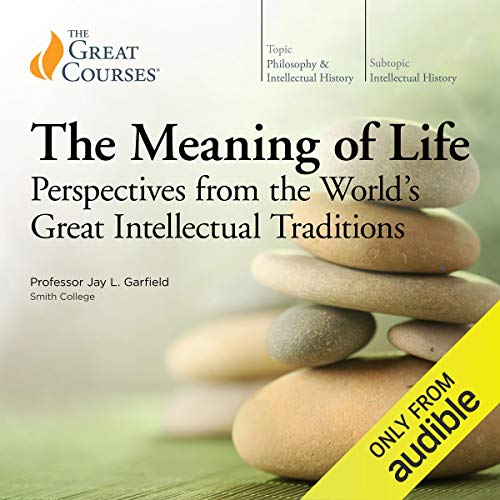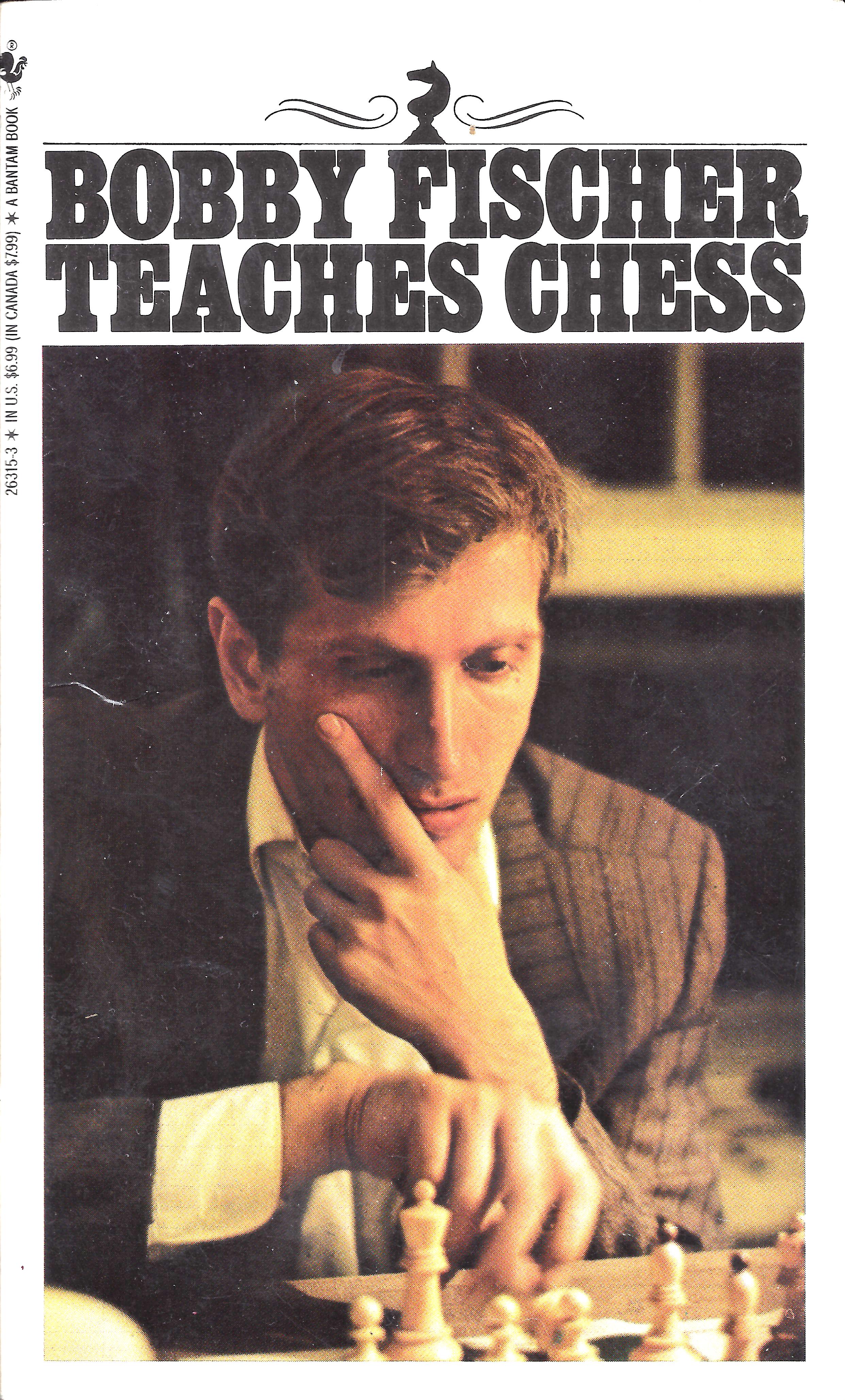I have a bone to pick with Plato.
Ok so Plato’s Republic is pretty much the most influential philosophy book in history. As one might expect from a book with that kind of reputation, it’s an impressive and challenging work whose elegant structure and powerful writing lay open before the reader an absolute buffet of thought-provoking ideas. Before I proceed with any criticism, I must pause to openly acknowledge Plato’s brilliance as a writer and philosopher.
Now that the brilliance has been acknowledged, I’ll be frank: Plato turns out to be utopian-minded totalitarian elitist obsessed with establishing a caste-based society wherein the vast majority of the people are treated like human cattle while a firmly entrenched class of “guardians” rules over them with an iron fist. In order to keep the lower classes docile and unquestioning, the guardians will block them from obtaining an education (only the guardians will be educated), and will institutionalize a set of lies designed to prevent revolt – for example, the lie that workers are predestined to remain powerless and poor because they were born with “bronze souls” that make them incapable of ruling, while the guardians possess “gold souls” that predestine them for positions of power. Plato, when he imagines his perfect society, envisions an ignorant and powerless lower class who, indoctrinated since birth to believe they are inferior, builds and slaves and carries their burden in silence, leaving the “philosopher kings” to rule the city as they please. This dystopian nightmare is Plato’s plan for maintaining political stability…. so that alone is troubling and worthy of discussion. But my particular beef (at this moment anyways) isn’t about Plato’s totalitarian blueprint, but instead that he uses the ‘dialogue’ format as a cover to trick us into thinking his terrible ideas are actually good ones.
When I picture a philosophical dialogue, I imagine a conversation where each participant has something substantial to contribute, where characters challenge each other, and good ideas provide counterpoint to other good ideas (and bad ideas are dismantled), where the conversation morphs and changes and weaves in unexpected directions, and as a result new conclusions and deeper truths are discovered. But in Republic one main character, Socrates (who represents Plato), is free to heroically spin out all of his wacky ideas on government and morality, while his companions obsequiously nod their heads and shout their agreement at every possible opportunity. In other words, Plato tells us this is a dialogue, but doesn’t allow his characters to challenge Socrates at any of the most crucial moments, such as when he tries to convince us that an ideal society would require strict censorship, government-sponsored lying on a massive scale, and the disenfranchisement of the vast majority of people. Sure Socrates’ companions challenge him on other points, but not when it really matters. They banter over other questions, but they don’t scrutinize his political blueprint at the level I would expect from a philosophical discourse. Nor do they forcefully protest when Socrates lays out his conception of justice, which looks something like this: every member of a particular caste does his job without complaint, we all mind our own business, and most importantly we sacrifice our personal desires and needs to those of the totalitarian state.
Why does Plato use the dialogue format if not to challenge these controversial ideas? He uses the dialogue format to make us, the readers, think that his political program has been probed and challenged at every turn, when in fact it skated right by unscathed. Since the characters do offer occasional resistance to Socrates and quibble over other philosophical questions, the reader is misled into thinking that Socrates’ political logic has been tested thoroughly over the course of this conversation. In the end we are supposed to feel as if his logic was so impregnable that no reasonable person could come up with a valid objection. After all, if a reasonable objection to Socrates’ scheme could be found, wouldn’t one of these bright young men in the dialogue find it?
And so Plato (with Socrates as his mouthpiece) constructs his “perfect” society where most people would be no better than slaves, and dresses it up as objective truth discovered via the Socratic method. Even when the other characters are offered ample opportunities to object or challenge this vision, they decline. In Book IV, after Socrates has laid out his whole plan for creating his totalitarian state, he announces that he wishes to pivot the conversation so he can discuss justice in his state. He turns to one of his companions and says, “I mean to begin with the assumption that our State, if rightly ordered, is perfect.” His companion simply replies, “That is most certain.” He doesn’t question the political blueprint at all, but goes along with Socrates in total agreement their new society would indeed be perfect. This is a brief but pivotal moment. Socrates is attempting to move forward in his argument, so that he can build on the foundation he has already established. This is the ideal moment for someone to step in and say, “actually Socrates, before you work out the finer details of your society, I feel obligated to say that your plan so far sounds like it would just result in despotism. I know you claim to hate tyranny (Socrates states this openly in Book VIII), but aren’t you in fact providing philosophical ammo to any group of despots who wants to entrench their own power? Haven’t you not only given them a useful plan that describes exactly how best to lie to the people in order to maximize the power of the ruling class, but haven’t you also provided philosophical justification for this despotic behavior by calling it just? Though your plans are supposed to describe an ideal state, don’t you see that any real humans who attempt to use your framework will end up no better than slave-masters ruling over a broken people?”
Or perhaps, “How can a state be ‘perfect’ if the rulers have to use constant deception to maintain their power? Don’t you, Socrates, believe that it is a moral act to seek and teach the truth, as you yourself have done throughout your career as a philosopher? Yet your society makes it illegal for any member of a lower class to do just that, and illegal for a member of any class to challenge the political order you hope to establish. Isn’t that a contradiction? How can you, a philosopher, embrace a society where real philosophy would become impossible, a society where so-called “philosopher kings” would force their citizens to live in ignorance? What kind of philosophers would these kings really be, if they behaved that way?” This seems to me an obvious objection.
Honestly I’m kind of astounded with Plato. He seems to want us to believe that his beloved teacher Socrates, the mythical lover of truth, would (if he had the power to do so) make it illegal for anyone but the most powerful elite to seek knowledge? It doesn’t even make sense that a man who literally martyred himself for the cause of philosophy would wish to ban philosophy! It’s important to remember why Plato demands that the lower classes remain ignorant: the stability of the whole society depends on it. Since the laborers, artisans, merchants, builders, slaves (and anyone else not born into the guardian class) will be deprived of all political power, the only way to keep them from revolting is with deception and force. Political stability is very important to Plato; after all he grew up during the Peloponnesian War between Athens and Sparta, during which Plato witnessed the horrors of war, along with all the plagues and political upheaval that come with it. After surviving that series of catastrophes, it makes sense that Plato considers stability to be of chief importance, and we can even understand why he sought to convince us that stability is the most important aim of the perfect state. But to put into the mouth of Socrates the opinion that deception is superior to truth if it maintains stability…. that feels like a low-brow move. It’s as if he is attempting to exploit Socrates’ credibility as a philosopher and truth-seeker in order to lend credibility to a doctrine Socrates (the real Socrates) would have rejected whole-heartedly. Plato claims to want philosophers to rule, but a true philosopher (like the real Socrates) would never be allowed to rule in Plato’s state because of Socrates’ unflinching commitment to truth. What is a philosopher, if not a person who values and hunts for unadulterated truth? Perhaps Bertrand Russell1 was right when he said of Plato’s philosopher kings, “a philosopher is to be, for all time, a man who understands and agrees with Plato.”
Plato’s assumption that stability should be our ultimate political goal is actually itself another claim that goes unchallenged in the dialogue. Plato treats his contempt for diversity as an obvious, universal truth. In Book V Socrates asks, “Can there be any greater evil [within a state] than discord and distraction and plurality where unity ought to reign? or any greater good than the bond of unity?” His companion Glaucon answers without hesitation, “There cannot.” They then proceed to examine whether their proposed state lives up to this timeless standard. However it seems prudent to pause and question whether pluralism is indeed such a great evil. Diversity of thought, difference of opinion, unique ways of seeing the world – these are qualities that can contribute to innovation. As more and more persons contribute their ideas to the hopper, the ideas/philosophies/wisdom/culture/science of the society are elevated and transformed. I do not intend to argue here that pluralism is some kind of ultimate good (or that it is a higher good than stability); instead I would just like to point out that Plato does not pause to ask that question. He barrels forward, and none of his characters have any problem with that; they all automatically accept his premise that diversity of opinion is a great sin.
Likewise Socrates’ companions fail to properly challenge the claim that mass deception is the appropriate way to keep the disenfranchised multitude from demanding political power. Plato and his companions appear to be united in agreement: the ends justify the means. As long as the guardians maintain a perfectly stable society that never changes they are acting justly, no matter how many lies they need to tell. In this light, the famous allegory of the cave (Book VII) smells faintly of hypocrisy. Plato argues that the unenlightened individual lives in a metaphorical cave. He is chained to the wall, and what he perceives to be reality as it really is, is actually just shadows on the wall cast by the fire in the cave. Most people are trapped in this pathetic state and don’t even realize it. Only the philosopher, the seeker of truth, can unchain himself and escape to the true world above, to see the world as it really is in the light of the sun. It is then his duty to return to the cave and free the others. That’s a lovely image. But then upon reflection Plato’s blueprint for a society – where the philosopher kings use lies and deception to convince the majority of people that they have “bronze souls” and are fit for nothing better than manual labor – contradicts the image of the philosopher as liberator, and instead transforms him into philosopher as slave-master. Perhaps Plato actually sees the allegory like this: when the enlightened person returns to the cave, instead of freeing the others he should reinforce their chains so that he may rule over them like a god. Only he possesses knowledge of the truth and freedom of movement, so shouldn’t he become the overseer in the cave of lies rather than breakers of chains?
I believe that in Plato’s ideal society, a man like the historical Socrates (the real life lover of truth, not the warped version presented in Plato’s dialogue) would have been very unhappy. After all he was a breaker of chains, a man whose main concern in life was teaching others how to seek the truth. But in Plato’s state, Socrates (unless he happened to be born into the guardian class) would have not only been prevented from seeking and teaching the truth, but would have been brainwashed by the state in order to turn him into a hard working sheep, a man who never questions the rulers or the order they maintain, a man incapable of obtaining knowledge of his own world, a man chained to a cave wall. How could Plato, a teacher of philosophy, advocate such a fate for his own teacher? And why don’t the other characters in the dialogue point out this hypocrisy?
Another example: Republic is intended to be a prolonged search for the true nature of justice, and throughout the work Plato toys with many definitions of justice. But as Karl Popper2 points out, Plato fails to present, in any capacity, a concept of justice where all citizens are treated fairly and equally under the law. This understanding of justice happens to be the one to which many if not most Americans likely subscribe. Many in the West have come to understand that justice can only exist if all members of a society are treated fairly in the eyes of the law (and perhaps also economically equal, though that is hotly debated). Plato, who seems eager to explore every possible definition of justice, doesn’t even pay lip service to this egalitarian vision of justice.
One might accuse me of being anachronistic here. In other words, am I admonishing Plato for failing to grasp a definition of justice (all men are equal under the law) that only developed thousands of years after his death? To this accusation I say phooey! This egalitarian view of justice was not only present in democratic Athens, it was in vogue! Just take as one example the most famous speech to ever come out of this period, the Funeral Oration of Pericles. This great Athenian leader delivered his ringing defense of democracy just one generation before Plato, and in his speech he takes a moment to admire Athens’ devotion to the very type of egalitarian justice of which Plato seems so ignorant:
“Our constitution does not copy the laws of neighbouring states; we are rather a pattern to others than imitators ourselves. Its administration favours the many instead of the few; this is why it is called a democracy. If we look to the laws, they afford equal justice to all in their private differences; if no social standing, advancement in public life falls to reputation for capacity, class considerations not being allowed to interfere with merit; nor again does poverty bar the way, if a man is able to serve the state, he is not hindered by the obscurity of his condition. The freedom which we enjoy in our government extends also to our ordinary life. There, far from exercising a jealous surveillance over each other, we do not feel called upon to be angry with our neighbour for doing what he likes, or even to indulge in those injurious looks which cannot fail to be offensive, although they inflict no positive penalty. But all this ease in our private relations does not make us lawless as citizens. Against this fear is our chief safeguard, teaching us to obey the magistrates and the laws, particularly such as regard the protection of the injured, whether they are actually on the statute book, or belong to that code which, although unwritten, yet cannot be broken without acknowledged disgrace.”
Excerpt from Pericles’ Funeral Oration3
So clearly the idea that justice requires equal treatment for all men under the law was a prevalent idea in Plato’s time, yet Plato fails even to touch on it in Republic, his supposed inquiry into the nature of justice. I will note that despite Pericles’ beautiful words, his sentiment did not exactly match the reality on the ground. Athens’ economy was built and sustained by slave labor, and very few people in the city qualified for the “citizenship” that Pericles mentions in the excerpt above. So no, Athens’s law code did not actually treat all men (or women) equally, far from it. But at least we can confirm that this idea of justice not only existed, but seems to have been a cornerstone of Athenian culture, and the way Athenians thought and spoke about themselves.
Plato seems more interested in promoting his own world view than uncovering the honest truth about justice, or exploring perceptions of justice that oppose his own. If he was after the truth, he would allow at least one of his characters to put voice to an equality-focused notion of justice, to give it just a moment to shine before Socrates dismantles it. But this kind of justice doesn’t surface in the dialogue, and nobody involved in the dialogue seems particularly concerned by that. When Socrates proposes a “just” state where most of the people are told they have bronze souls, none of his companions find it worthwhile to ask something like, “If the majority of the citizens in our state are deceived and barred from ever seeking the truth or wielding power, isn’t it possible we treat the majority of citizens unjustly? Shouldn’t we at least consider whether justice could be found instead in a state that offers equal treatment under the law to all citizens, regardless of their wealth or caste?” It seems a reasonable enough question. There were certainly plenty of democracy-loving Athenians who would have wanted to ask just such a question of Plato if given the chance. But nobody in the dialogue asks it. When Socrates paints a picture of justice that requires the disenfranchisement of the masses, his companions simply nod along. The more I ponder these weaknesses in the dialogue, the more I question Plato’s intellectual honesty, despite his unqualified brilliance as a writer and thinker.
How about yet another example: throughout the work Socrates speaks on behalf of collectivism; he wishes to form a society where individuals are universally expected to sacrifice in order to benefit the society as a whole (individual desires and needs are subservient to the desires and needs of the state). The only character to espouse anything resembling individualism is Thrasymachus at the very beginning of the book, but he’s such a cynical, selfish nihilist that Socrates is easily able to equate individualism itself with selfishness, and (after handily beating Thrasymachus) proceed as if all arguments for individualism have been defeated. For the rest of the book individualism is only mentioned briefly, when it is ridiculed as the very embodiment of egoism and selfishness.4 For one so intellectually powerful as Plato to create a ‘dialogue’ that, though it claims to seek a perfect society, ignores completely the very concept of individualism (except to periodically ridicule it) reeks of pre-meditated concealment of the truth. Individualism, the notion that our personal desires/needs/beliefs/accomplishments/freedoms do matter, and can even outweigh the needs of the state as a collective whole, is one of the bedrocks of western culture, and I imagine that in Plato’s day many citizens of democratic Athens would have believed that individualism had a crucial role to play in any functional society. Plato does not really wish to tackle the positive aspects of individualism head-on; after all, the more positives there are, the more difficult it will be for him to maintain his collectivist society. So instead he simply asks the characters in his dialogue to remain silent on this point, and refrain from arguing in favor of individualism in any meaningful way.
(Note: it could be argued that I am fully under the spell of Plato-critic Karl Popper. It’s true that I did read Popper’s classic critique of Plato while I was reading Republic, and perhaps that was a mistake. I was so taken with Popper’s argument that Plato’s ideal society contains totalitarian elements, and it gelled so well with my own natural inclinations against Plato’s brand of idealist political philosophy, that it was difficult for me to read Plato with a completely open mind, though I certainly tried! So yes, I eagerly added the lens fashioned by Popper to my little bag of lenses. But the main argument of this essay – that Plato’s dialogue-style of writing is a cover for his faulty political theory – is my own, not Popper’s… at least I think it’s mine).
Here’s a slightly longer example: in Book II Plato builds an extensive argument that it is wise and just to censor from the great works of ancient poetry any mention of the gods misbehaving, or acting cowardly or foolish, or fighting one another, or changing shape, or anything that makes the gods seem less than perfectly good. His reasoning for this is that only through censorship of these negative portrayals of the gods can we create a truly just society full of just men. We need our gods to model virtuous behavior in order to inspire men to do the same, and therefore any tales of mischievous or naughty gods must be expunged and banished, never to enter the sweet, innocent ears of our children. Afterall if the gods act like fools, why shouldn’t we? But what’s surprising here is that for Plato this censorship is not actually a deception. In fact it’s built on a fundamental truth, the starting place of a long chain of reasoning: that the gods themselves, in the real world, must actually be perfectly good:
Socrates: God is always to be represented as he truly is, whatever be the sort of poetry, epic, lyric or tragic, in which the representation is given. Adeimantus: Right. Socrates: And is he not truly good? and must he not be represented as such? Adeimantus: Certainly. Socrates: And no good thing is hurtful? Adeimantus: No, indeed. Socrates: And that which is not hurtful hurts not? Adeimantus: Certainly not. Socrates: And that which hurts not does no evil? Adeimantus: No. Socrates: And can that which does no evil be a cause of evil? Adeimantus: Impossible. Socrates: And the good is advantageous? Adeimantus: Yes. Socrates: And therefore the cause of well-being? Adeimantus: Yes. Socrates: It follows therefore that the good is not the cause of all things, but of the good only? Adeimantus: Assuredly. Socrates: Then God, if he be good, is not the author of all things, as the many assert, but he is the cause of a few things only, and not of most things that occur to men. For few are the goods of human life, and many are the evils, and the good is to be attributed to God alone; of the evils the causes are to be sought elsewhere, and not in him. Adeimantus: That appears to me to be most true, he said.
Socrates (Plato) doesn’t attempt to prove that God is perfectly good, but instead he simply assumes it to be true. It is a theological statement of faith, not a philosophic inquiry into the true/untrue nature of the statement. And because God is perfectly good and incapable of evil, therefore all stories of God doing otherwise must be lies, and so it is just and correct to purge them from our society. Plato’s extensive program for properly educating the guardians begins with an unfounded religious sentiment dressed up like unimpeachable truth, a wild guess about the nature of the divine, an unquestioning statement of faith. From that starting place Plato constructs his ideal state, always with this ideal image of God in the background providing a foundation for the state’s theology and culture, and justification for censorship and religious persecution.
What really surprises me is Adeimantus’ behavior: he wholeheartedly accepts all of Socrates’ unfounded assumptions about the gods, and confirms without question that many beloved poems and tales are actually corruptive and evil. Though he questions Socrates elsewhere in the dialogue, here he only acts as Socrates’ hype man, confirming with certainty everything Socrates asserts. Plato needs this assumption to proceed unchallenged, since it is the first crucial building block in his political program, a program that culminates in the guardians taking firm control over all cultural, moral, and theological matters. Since this first point is so crucial, Plato refuses to allow even his most inquisitive characters to question it, even for a moment. It is taken for granted that gods must be good, and therefore the guardians’ coercive actions are just, moral, and pious. Plato constructs a totalitarian state and calls it just because it aligns with an unfounded religious claim. Why bother hosting a dialogue on these sorts of issues if not to question just this kind of underlying assumption? This is more evidence that Plato had no intention of using the dialogue format to discover fallacies in his own reasoning, but instead only to make it appear that he did so. Or as Adeimantus puts it in Book II: “…we shall say that you do not praise justice, but the appearance of it.”
Irony alert: the historical Socrates was put to death for impiety and blasphemy. In The Republic Plato transforms his beloved teacher from the real man who stood up for his own unique interpretation of the gods into a militant religious fundamentalist who seeks to establish a theocracy. Plato’s version of Socrates would never allow individuals to discover their own unique interpretations of the divine, but would instead dictate to the citizens which portrayals of the gods are acceptable and which are forbidden. If the real Socrates, despite the persecution he faced for disagreeing with certain established religious customs, truly believed that the theocracy Plato constructs in Republic would be a just society, I’d consider that an act of hypocrisy. Wouldn’t the real Socrates, the man who always claimed not to know anything, hesitate before making a decree about the true nature of the gods? Wouldn’t he instead wish to question someone who made just such a statement, and probe their reasoning to uncover hidden fallacies? It seems far-fetched that the real Socrates would ever condone a society that forces everyone to think a certain way. Yet Plato seems to have no qualms about warping Socrates from a free-thinker into a puppet, from a man who claimed to know nothing into a character with all the answers, from an honest seeker of truth into a totalitarian whose favorite tools are censorship and outright deception. (It is also easy to see how Platonism became not only the foundation for Christianity, which shares with Platonism the vision of God as being perfectly good, but also for the autocratic theocracies of the Middle Ages, which considered it sacrilege to believe anything counter to official church doctrine).
My anger here isn’t really because the word ‘dialogue’ is being misused, but because Plato’s far-fetched ideas are presented as highly logical, tightly-argued, and well-proven, when in fact the most destructive ideas are hardly given any scrutiny or face any push-back. I am bothered that there is a kind of “lie” baked into the dialogue. The lie is that Socrates/Plato have so well-argued their points, and so thoroughly defeated any counter-arguments, that their blueprints for society must be based on objective truths. Under this guise, a cock-eyed scheme is dressed up as proven science. This lie can still impact readers to this day, and the mythical status of Plato only exacerbates this; after all, who would have the audacity to challenge the world’s greatest and most famous philosopher on his most well-argued points? Who would dare tell Plato that his concept of justice is hopelessly misguided, that his arguments will only provide useful material to despots who aim to entrench their own power by using deception and force, and that his philosophy at its core represents the enslavement of mankind? I would hope that Plato would have the intellectual honesty to allow one of his characters (perhaps one who admires Athens’ democracy) to speak these words. But alas, he does not.
Ok that’s my beef with Plato. Seriously why did I even bother to write this? I feel like a gnat picking a fight with a giant.
And this all being said, I do not mean to argue that we must reject this entire dialogue, far from it. There is so much depth and richness in this dialogue, so much that provokes and inspires. It is a timeless work of genius that should be read and studied by every generation. I just personally have a problem with any political philosophy that comes with a built-in assumption that all of mankind must either accept the exact beliefs of the philosopher, or be violently suppressed. The human race is far too complicated and varied to ever subscribe to one single worldview or philosophy. So any author who wishes to force his ideas upon the whole world is really just using coded language: what he really means to say is that he wishes to be God over all of mankind, with the power to smite anyone who disagrees with his perspective, and the authority to remake the whole world as he sees fit (the way a child pretends to be the God of the make-believe world he creates out of his toys). This is my issue with Plato, with Lenin, and with anyone else who truly believes his ideas are so perfect that he can speak for the whole world: their philosophies try to force the whole human race to see things a certain way, and in the end their political programs would amount to nothing less than the wholesale persecution of the vast quantities of human beings who see the world through different lenses.
Another similarity between Plato and Lenin is that both are utopian thinkers. What makes both of these authors utopian is their failure to remember that power corrupts: both wish to arm their preferred classes (philosopher kings for Plato and proletarians for Lenin) with unmitigated power, and both expect this to go well. Plato seems to believe that if he is able to implement his ideal educational program (and of course dabble in a bit of “noble lying”), he can cure men of that disease that makes us so corruptible, or at least discover/breed just enough men in the city who can be cured of this to put together a junta. If this initiative fails, the city fails. This means that if Plato isn’t able to create (through eugenics and indoctrination) a race of super-humans who are utterly impervious to the corruptive influence of power, and who, through their study of philosophy, are no longer willing/able to use their absolute power for selfish reasons, his ideal city will collapse into tyranny. This seems to be a fragile arrangement, easily corrupted. But Plato believes that philosophy and proper education can be that cure, and he’s willing to stake everything on that. That’s what makes him a utopian.
To put it another way, he is willing to arm the rulers of his city with the Ring of Gyges (see Republic 2:359a–2:360d), to give them the power to do whatever they want and get away with it. He expects that they will behave because they are philosophers. At the same time he wishes to deprive the workers of all of the their political power, and expects them to behave because they will be subdued by the noble lie. This sort of far-fetched, utopian theory doesn’t appeal to me because of the mind-bogglingly high risk involved in arming ANY group of humans with absolute power (and depriving the majority of theirs). I just wish that in Plato’s dialogue, someone had voiced this obvious concern with the same sort of penetrating seriousness that Plato uses to lay out his political blueprint.
Really though, I might have this whole thing wrong. After all there are many ways of reading and interpreting this long and complex dialogue, so maybe I’m trying to slay demons that aren’t even there. Plato scholar David Roochnik5 argues that Plato’s main purpose in writing Republic is not to provide a blueprint for any kind of realistic city, but instead to prove that philosophy in general is a worthwhile activity (or perhaps even the highest form of good). Throughout the dialogue, Plato argues that only philosophy can turn our heads away from the shadowy world of false images and reveal the sun in all its splendor. So when he argues that the philosophers should be kings, maybe he’s just making a point about the power of philosophy, rather than developing his philosophy of power. As for Plato’s lengthy and detailed plan for his ideal city, perhaps it’s no more than an allegory for the ideal human soul, where reason and philosophy (the guardians) rule over passion (the rest of society). If this is the case, and Plato didn’t actually mean to suggest that his blueprint should ever be implemented, then I’ll hold my fire. I can never agree that what he describes could ever be an ideal city, but as an allegory for the soul it works better (at least it isn’t patently absurd like the political theory). But I don’t think Plato is clear on this point, which means that many would-be dictators could misconstrue his meaning and arm themselves with philosophical justification for developing a totalitarian regime (in the name of building an ideal state).
Frankly I consider it far-fetched that the political theory expressed in Republic is nothing more than one giant allegory, and that Plato isn’t at least partially serious about his plans. I struggle to believe that when he speaks of destroying private property and the family, of initiating a strict and pervasive program of censorship, of robbing the vast majority of citizens of any political power or upward mobility, of using dishonesty (the noble lie) to fully subjugate and pacify the public, that he is actually just being symbolic. While I agree that he is making a symbolic point about the soul and that his ideal city is an allegory, I firmly believe that he ALSO wishes to see his political program enacted in the real world. When he says his proposed city is an ideal one, I must assume he isn’t just speaking in code or constructing a puzzle that can only be solved if we assume he doesn’t mean anything he says about politics in the real world.
In the end, this dialogue is still provocative 2,500 years after it was written. It is challenging, controversial, and asks more questions than it answers. Plato clearly understands that his words can be interpreted in many different ways, and he seems to revel in this. This is one of the features that makes this dialogue so enjoyable and frustrating to read. Plato isn’t clear whether he is serious about his proposals or simply being ironic, or if his political program is one giant symbol, or whether is believes that his ideal city would be beneficial to mankind but is sadly unattainable, or whether his intention is actually to initiate his proposed policies. He lets the reader decide, which leads to the conclusion that the real point of this dialogue is to make people think (and to inspire people to write articles like this one). So please do read Plato, and let him provoke you. His ideas will certainly get you thinking, and may open many doors in your mind! But when you read it, don’t think that just because Plato says something it must be true. He was, after all, just a man. He had his own agenda, his own shortcomings, his own fears, his own pride. His ideas are just one small piece of the infinite tapestry composed of all the ideas generated by mankind across the centuries. So read his work, let it challenge you, but for goodness sake challenge it right back whenever you spot something that doesn’t add up. Plato’s characters don’t really challenge most of the far-fetched plans laid out over the course of the dialogue, but I hope that Plato the philosopher would be appreciative if we, the readers, do just that.
Notes:
- Bertrand Russell, A History of Western Philosophy, (New York: Simon and Schuster, 1945), 115.
- Karl Popper, The Open Society and Its Enemies, Volume One: The Spell of Plato, (New Jersey: Princeton University Press, 1971), Ch. 6.
- Pericles, “Funeral Oration” in The History of the Peloponessian War by Thucydides (431 BC), Ch. 6.
- Popper, 100-106.
- David Roochnik, “Book X – Philosophy versus Poetry,” The Great Courses: Plato’s Republic, (The Teaching Company, 2005), Lecture 21.





